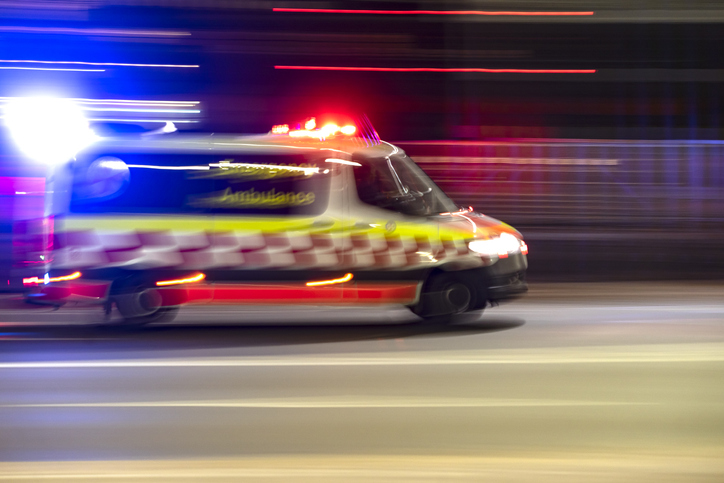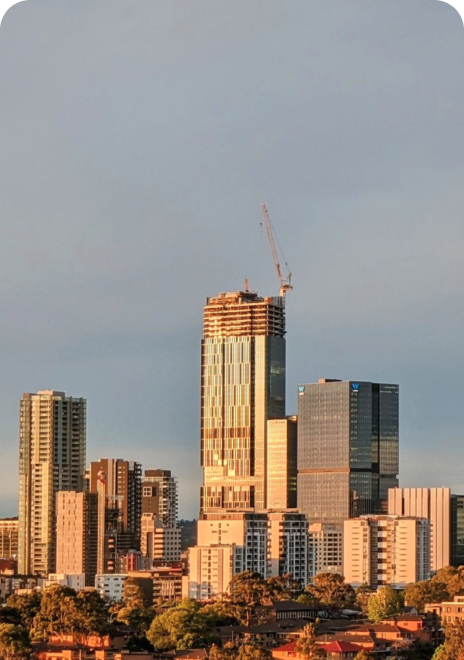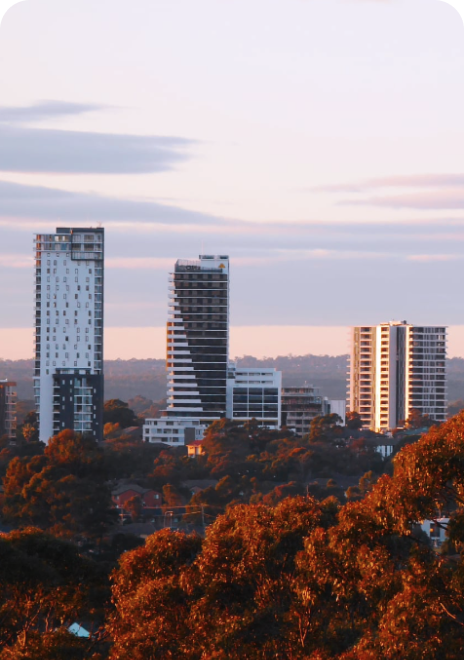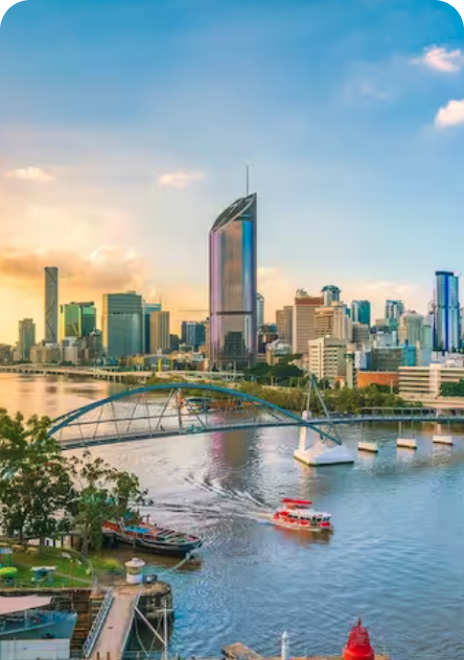No win, no fee guarantee*
You won’t pay unless we win your case
Over 99% success rate
Proven results for thousands of satisfied clients
Personalised care
Your case is treated with care and attention, not as just another file
A winning team
Work with experienced professionals from start to finish
Am I Eligible to Make a Police, Ambulance and Fire Fighter Injury Claim?
You may be eligible for an ambulance, police, or fire brigade transportation injury claim if you’ve been injured or fell severely ill as part of your work. You can also submit a compensation claim if you have a pre-existing injury and your work responsibilities make it worse.
Workers who can claim for an ambulance, police, or fire brigade transportation compensation include:
- Full-time workers
- Part-time workers
- Casual employees
- Sub-contractors/Sole traders
At Wyatts, our professional work injury lawyers will ensure you get maximum compensation for your injuries and distress.
What Injuries Can I Claim in an Ambulance, Police, or Fire Fighter Compensation?
Some common injuries occurring in ambulance, police, or fire brigade transportation jobs that qualify for compensation include:
- Sprains and Strains – Caused by lifting heavy patients or equipment
- Fractures and Dislocations – Resulting from slips, trips, and falls
- Back and Spinal Injuries – Due to sudden movements or vehicle accidents
- Burns and Smoke Inhalation – Common in firefighting operations
- Cuts and Lacerations – From broken glass, sharp objects, or tools
- Head Injuries – Caused by assaults, falls, or vehicle crashes
- Psychological Trauma (PTSD, Anxiety, Depression) – From exposure to distressing incidents
- Crush Injuries – Due to collapsing structures or heavy equipment
- Hearing Loss – From prolonged exposure to sirens and loud environments
- Exposure-Related Illnesses – From hazardous chemicals, bloodborne pathogens, or extreme weather conditions
Regardless of how you have been injured, our experienced work injury lawyers can help you navigate your ambulance, police, or fire brigade transportation injury claim. Contact us today to receive the compensation you’re entitled to.
What Compensation Can I Claim for an Ambulance, Police, or Fire Fighter Injury?
Your compensation will depend on the severity of your injuries, when they occurred, your state, and the law you’re covered by. Navigating these processes can be challenging, but our team of professional police, ambulance, and fire brigade transport injury lawyers is here to simplify the entire process.
You may be able to claim for most expenses related to your injury, such as:
- Medical, hospital, and nursing care
- Personal, household, and occupational support
- Doctor and pharmacy costs
- Physiotherapy and chiropractic treatment
- Rehabilitation services
- Ambulance transportation
Depending on your situation, additional benefits may be approved, such as:
- Attendant care services
- Home or vehicle modifications
- Domestic assistance
- Transportation expenses
Our paramedic injury lawyers can guide you through the claims process and ensure you receive all the benefits you’re entitled to. Contact Wyatts Lawyers at 1800 773 880 to get your free claim check.
How Much Compensation Can I Expect from a Police, Ambulance and Fire Brigade Claim?
The amount of compensation you may receive depends on the duration of your injury and your ability to work. Below is a summary of weekly workers compensation payments for injuries that occurred after 21 October 2019:
| Entitlement Period | Compensation Amount |
|---|---|
| Weeks 0-13 | Up to 95% of pre-injury earnings |
| Weeks 14-130 – No Work Capacity -(No Work Capacity) | Up to 80% of pre-injury earnings |
| Weeks 14-130 – Some Work Capacity* | Up to 80% of pre-injury earnings (increases to 95% if working at least 15 hours per week and earning $200+ per week) |
| Weeks 141-260 (No Work Capacity) | Up to 80% if unable to work indefinitely |
| Weeks 141-260 (Some Work Capacity*) | Payments stop for most, with some exceptions |
| After 5 Years | Weekly payments are only available if permanent impairment is greater than 20%. |
*Some work capacity means you can return to suitable work but not your pre-injury job.
The maximum weekly compensation is adjusted every April and October. From 1 October 2024 to 31 March 2025, the cap is $2,523.00 per week.
If you need guidance on your claim, our expert workers compensation lawyers are here to help. Contact us today to ensure you receive the maximum benefits you’re entitled to.
Your Rights and Entitlements for an Ambulance, Police, or Fire Fighter Transportation Compensation Claims
The amount you can claim depends on the severity of your injuries, their causes, and the location. Here’s a breakdown of potential entitlements:
| Types of Payout | Benefits |
|---|---|
| Workers Compensation Payment |
|
| Total & Permanent Disability (TPD) Claims |
|
| Public Liability Payouts |
|
If you’re unsure about your entitlements, our expert police, ambulance and fire brigade transport injury lawyers can assess your case and guide you through the claims process.
How Do I Claim Workers Compensation for a Police, Ambulance and Fire Brigade Injury?
To file a workplace compensation claim for a police, ambulance and fire brigade transport injury, it’s essential to gather the necessary information and documents beforehand. Here’s what you need to do:
- Ensure your employer is informed about the injury as soon as possible.
- Obtain a Medical Certificate, referred to as a WorkCover medical certificate, from your regular doctor.
- Lodge a Worker’s Injury Claim Form, which you can get from your employer or your workers compensation insurer, or we can provide it for you upon request.
- Remember to retain copies of the claim form and the medical certificate before submitting the originals to your employer or workers compensation insurer.
By preparing these key documents, you’ll help ensure a smoother claims process. If you need assistance, our work injury lawyers are ready to guide you every step of the way. Contact Wyatts at 1800 773 880.

CONTACT WYATTS
Tell us about your claim. We’ll listen to you and take the time to get to know you so we can fully understand your situation and needs.
YOUR ELIGIBILITY
We will explain in simple terms what you are entitled to based on what you have told us. Then we’ll offer to get started working on your behalf.
WE GET STARTED
You decide if you would like one of our compensation lawyers to start your case. Then we get to work for you.
Free initial consultation
No win no fee* policy
Five convenient office locations
In-home consultation If you are unable to travel
We can talk to you in your preferred language
Why Should I Work With a Work Injury Lawyer?
Navigating a police, ambulance and fire brigade transport injury claim requires you to be vigilant and have the legal knowledge to get maximum compensation out of your suffering. You might get less compensation if you miss any critical details. Wyatts Lawyers’ experienced workers compensation lawyers will:
- Ensure all your injuries, including psychological impacts, are thoroughly assessed
- Provide personalised advice tailored to your situation
- Handle negotiations with insurers to secure the maximum compensation
- Represent you in disputes or appeals if your claim is denied
- Work on your behalf so you can focus on your recovery
Having the right legal team ensures you achieve the best possible outcome.
How Long Will a Workers Compensation Claim Take?
In Australia, the duration of a workers compensation claim can vary widely. On average, it can take anywhere from 1.5 to 2 years to resolve, depending on the complexity of the injury, medical disputes, and disagreements over liability. Straightforward claims may be settled within a few months, but more complicated cases could take much longer, potentially even years.
At Wyatts Lawyers, our police, ambulance and fire brigade transport lawyers will help you resolve the compensation matter quickly. We will assess your situation and give you a realistic estimation of how long the claim may take.
My Workers Compensation Claim Has Been Denied. What Can I Do?
If your workers compensation claim for a police, ambulance, or fire brigade transport injury has been denied, you have several options to challenge the decision. The insurer is required to provide you with a written explanation for the denial, along with details on your next steps.
Some common reasons for claim denial include:
- The insurer does not classify you as a ‘worker’ under the legislation.
- The insurer believes that your employment was not the primary cause of your injury.
- The insurer deems your medical treatment or related expenses as not ‘reasonably necessary.’
- The insurer attributes your condition to workplace actions such as transfer, demotion, promotion, performance appraisal, discipline, retrenchment, or dismissal.
- The insurer believes your employer’s actions were reasonable.
Note: On 1 March 2021, the Personal Injury Commission (PIC) became the central body for managing and addressing all workers compensation disputes.
Here are some options you can try to make a dispute:
- Request an internal review, requiring the insurer to reassess the decision and respond within 14 days.
- Lodge a dispute with the PIC.
- Call us on 1800 773 880 for free legal consultation.
Can I Claim a Lump Sum Workers Compensation Payout for a Transportation Injury?
Yes, you may be eligible for a lump sum workers compensation payout, depending on the nature of your injury or illness. There are two main types of lump sum payouts:
| Compensation Payout | Description |
|---|---|
| Permanent Impairment Payout | It is awarded if you suffer a permanent injury or impairment due to a work-related accident or illness. The payout amount is based on the severity of your impairment and the impact it has on your ability to work and live your daily life. |
| Work Injury Damages Payout (Common Law Claim) | If your injury was caused by your employer’s negligence or breach of duty, you may be eligible for a Work Injury Damages payout. This is a lump sum compensation for pain, suffering, loss of earnings, and other damages. In this case, you would need to prove that your employer’s actions or inactions directly contributed to your injury. |
In both cases, you may need to undergo assessments and provide medical evidence to support your claim. It’s advisable to consult with a lawyer specialising in workers compensation to navigate these processes effectively.
Can I Be Terminated If I Make a Workers Compensation Claim?
No, your employer cannot legally terminate you within the first six months after your injury just because you’re unfit to return to work. For instance, if you reside in NSW, your employer may only terminate your employment after six months if they have fulfilled all their obligations to you. However, under the NSW Workers Compensation Act, you remain entitled to benefits, and there may still be options for you to return to your position.
Can I Claim Workers Compensation If I’m a Casual Worker?
Yes, casual employees are eligible to claim workers compensation if injured at work. Workers’ compensation coverage is not restricted to citizens or permanent residents. If you’re on a work visa, you can still claim benefits if you’re injured while employed in Australia.
How Do No Win No Fee Lawyers Work?
Wyatts operates on a No Win, No Fee basis, meaning you won’t pay legal fees unless your case is successful. This allows you to pursue your claim without financial risk. Always check what is covered under the No Win, No Fee agreement to avoid unexpected costs.

"*" indicates required fields












